Search Results
Showing results 1 to 15 of 15
Mercury in the Environment
Source Institutions
In this environmental science lesson, learners will examine the dangers of mercury and how humans contribute to growing mercury emissions on Earth.
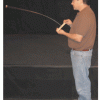
Inverted Foucault Pendulum
Source Institutions
In this demonstration, learners explore a variation of a Foucault pendulum, but upside down.
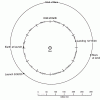
Getting There!: Navigation and Trajectory
Source Institutions
In this two-part activity, learners map a navigation plan to get from Earth to Mars and back. In activity one, learners represent the orbital paths of Earth through dance and dramatic movement.
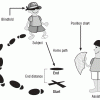
Find Your Way Around Without Visual or Sound Cues
Source Institutions
In this activity, learners play a series of simple games to investigate navigation without visual and sound cues.
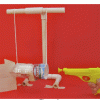
The Ballistic Pendulum
Source Institutions
In this physics crime lab or demonstration, learners pretend they are criminologists and must find the "muzzle velocity" (speed of the bullet as it leaves the gun) of a gun used to commit a crime.

Not Just A Bag Of Beans
Source Institutions
In this activity, learners count and measure kidney beans to explore natural selection and variation. Learners measure the length of 50-100 beans.
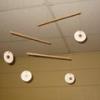
Rotational Equilibrium
Source Institutions
In this activity, learners explore the concept of rotational equilibrium. Learners work in teams to estimate and determine the force within a mobile design.

Mold Mole Molds
Source Institutions
In this activity, learners make different shapes that hold exactly one mole of gas (air).

Make A Map for A Treasure Hunt
Source Institutions
In this activity, learners will explore how maps can provide information about a place and help us find our way from one location to another.
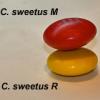
Survival of the Fittest: Variations in the Clam Species Clamys sweetus
Source Institutions
This guided inquiry three-part activity engages learners in thinking about the mechanism of natural selection by encouraging them to formulate questions that can be answered through scientific investi
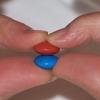
Survival of the Fittest: Battling Beetles
Source Institutions
This guided inquiry three-part activity engages learners in thinking about the mechanism of natural selection through data collection and pattern recognition.
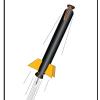
Foam Rocket
Source Institutions
In this activity, learners work in teams build and launch rubberband-powered foam rockets.
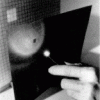
Inverse Square Law
Source Institutions
In this math activity related to light, learners explore why a light, such as a candle or a streetlight, looks dimmer the farther away from it we get.
MarsBound!: Mission to the Red Planet
Source Institutions
MarsBound! is an engineering simulation activity in which learners use realistic techniques to plan a mission to Mars.

Stabilization Wedges Game
Source Institutions
This game introduces learners to the scale of the greenhouse gas problem, plus technologies that already exist to dramatically reduce our carbon emissions and prevent climate change.
